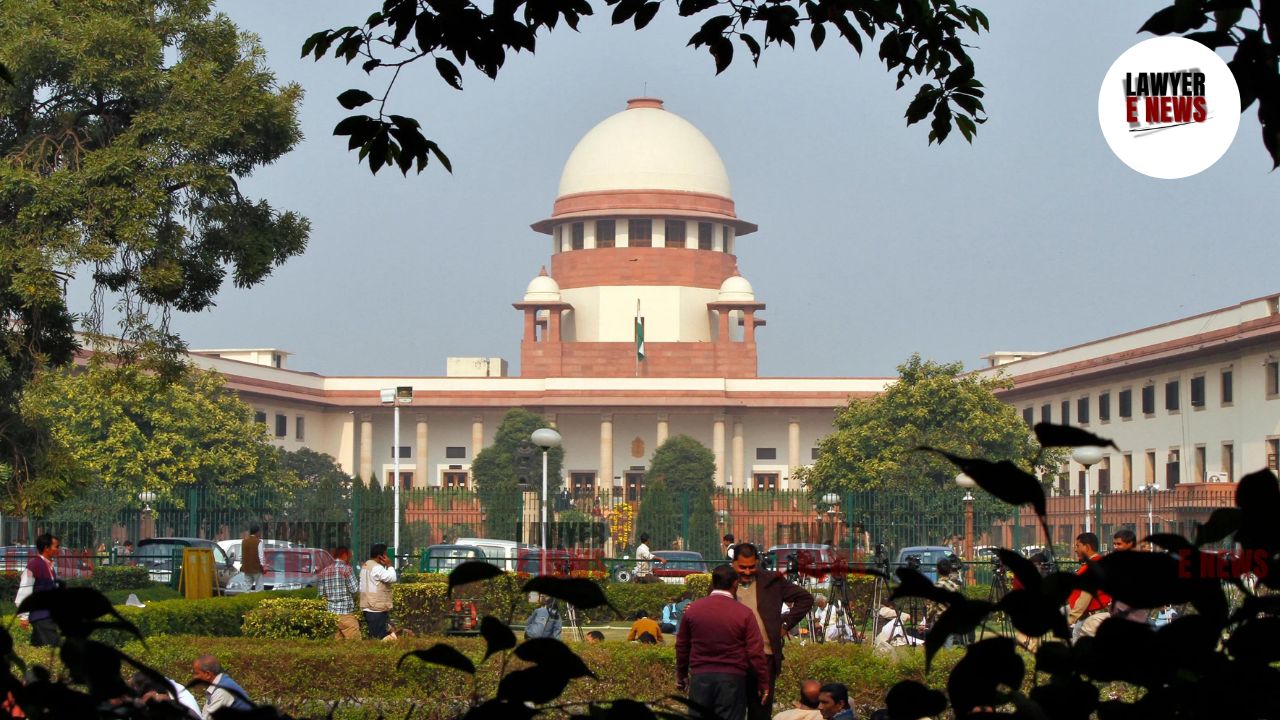-
by Admin
15 February 2026 5:35 AM



Supreme Court of India delivered a ruling in the case of V. Vincent Velankanni v. Union of India & Ors., clarifying the principles of seniority in promotions within industrial establishments. The court upheld the Madras High Court’s decision, which ruled that seniority for promotion should be determined based on the date of confirmation in the skilled grade, rather than the date of initial appointment in the semi-skilled grade. The court also held that a recent government order revising the seniority rules could not be applied retrospectively.
The appellant, V. Vincent Velankanni, along with the private respondents, was employed at the Engine Factory, Avadi, in Chennai in 1996. They were hired for semi-skilled posts, with Vincent Velankanni placed higher in the merit list than the respondents. Despite this, when the seniority list was revised in 2006, Velankanni found himself placed below the respondents in the skilled grade, as they had completed their probation and were promoted earlier.
Velankanni challenged the seniority list before the Central Administrative Tribunal (CAT) in 2007, claiming that his seniority should be based on his merit position during initial appointment. The CAT ruled in his favor in 2009, but the private respondents contested the decision in the Madras High Court, which reversed the ruling in 2011. The High Court stated that promotion to the skilled grade and seniority should be determined by the date of passing the trade test and confirmation in the skilled grade, rather than the date of initial appointment.
The key legal question was whether seniority in the skilled grade should be determined from the date of initial appointment in the semi-skilled grade or from the date of promotion and confirmation in the skilled grade.
The appellant argued that his seniority should be based on his merit position during his initial appointment in the semi-skilled grade, relying on the 1992 Office Memorandum of the Department of Personnel and Training (DoPT), which stated that seniority should be based on the order of merit at the time of recruitment. He also cited case law that supported the principle of reckoning seniority from the date of initial appointment.
In contrast, the respondents, backed by the Union of India, argued that the semi-skilled grade was a trainee grade, and seniority in the skilled grade could only be counted from the date of promotion after completing the trade test. They relied on a 2002 Government Order issued by the Ordnance Factory Board, which clearly stated that seniority would be determined from the date of promotion to the skilled grade, not the date of initial appointment.
The Supreme Court, led by Justices Sandeep Mehta and R. Mahadevan, upheld the High Court’s ruling, emphasizing that the relevant government orders at the time of the appellant’s promotion mandated that seniority be based on the date of promotion to the skilled grade. The court noted that the 2002 Government Order specifically required employees to pass a trade test and complete their probation to be confirmed in the skilled grade. It further clarified that the semi-skilled grade was a training grade, and seniority could not be reckoned from the initial appointment date in such cases.
The court also addressed the appellant's reliance on the DoPT Office Memorandum of 1992, explaining that the 2015 Government Order, which restored seniority to be based on the initial appointment date, could not be applied retrospectively. The court observed:
"The applicability of the Government Order dated 4th August 2015 cannot enure to the benefit of the appellant as its operation is clearly prospective."
The Supreme Court dismissed the appeal, reaffirming the High Court’s decision that the respondents were rightly placed higher in the seniority list based on their earlier promotion to the skilled grade. The court ruled that the seniority rules in place at the time of promotion, which required completion of probation and passing of the trade test, must be followed. Furthermore, the court emphasized that Government Orders or policies cannot be applied retrospectively unless explicitly stated, protecting the rights of employees who had already been promoted based on the old rules.
This ruling has a significant impact on how seniority is determined in industrial establishments, particularly where the promotion process involves completing trade tests and probation periods.
Date of Decision: September 30, 2024
V. Vincent Velankanni v. Union of India & Ors.
